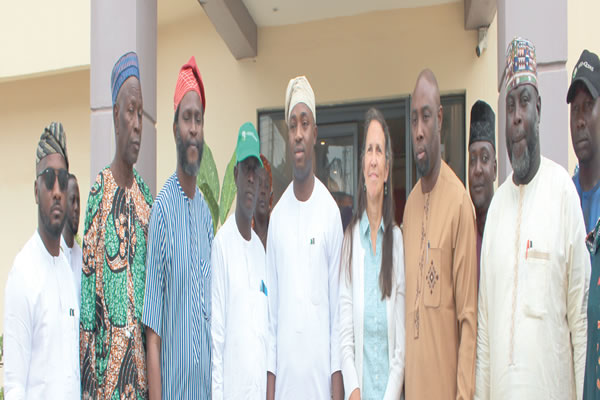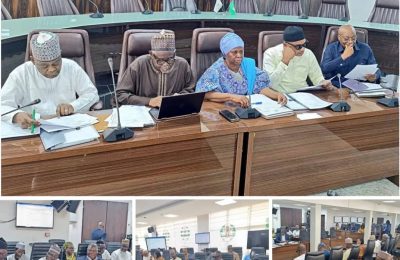
The RSM2SNF, a research project focused on supporting Africa’s Micro, Small and Medium Scale Enterprises (MSMEs) to provide safe and nutritious food has received accolades for a job well done by the Bill and Melinda Gates foundation for successfully operating at the grassroots level especially at local markets to aid hygienic practice in food handling, processing and production.
A representative of the organisation, Dr Shelly Sunberg expressed her satisfaction at what the project has done in Nigeria especially in Oyo State during an interactive session between representatives of market people, project facilitators and the donors as part of activities to allow donors to get to know what have been done and for hear from the market people and beneficiaries to get a proper evaluation of how the project has helped them and how it will continue to help them to do better.

While speaking, Dr Sundberg stated that she is “glad to see market leaders, sellers, researchers, government officials and media; we are here to make sure people in Nigeria have access to safe and nutritious diets. This project is working on the safety part of that to ensure market leaders know what a safe market is and have the infrastructure and investment to make the market safer for consumers because food that is unsafe is not good for consumption.
“This project is research is to show evidence to the policymakers so that the government can make decisions on how to bring safe, affordable and nutritious foods to the population. This project shares the innovation and recommendations to stakeholders so foreigners will not just come in from United States to decide or recommend; they actually sit down with the stakeholders, look at the evidence and decide the most effective policy to ensure the food remains safe and affordable.
“We have an office in Nigeria that works closely with the Federal Government. This project is working a lot with the state level government and we will soon step down to the local government and then we will go to the federal level so that our policy will spread nationwide in all levels of the government.
“The evidence from the meeting today says it all; so many people came way more than expected which shows the interest and belief in what this project has been doing and we heard from stakeholders and market leaders that they see changes in their market, their infrastructure is being improved and people understand what they have to do to keep food safe and hygienic. They said they have learnt to always wash their hand and use clean water to clean their foods. We’re seeing practices and it’s making huge difference in the population,” Dr Sundberg added.
In his contribution, one of the key project investigators, Prof. Oyinkan Tasie stated that he is happy that the process now involves all arms of government, adding that “this means everyone is involved. We are trying to bring young people into the process to help publicize the message and policies to make sure we have safe foods because anything that is unsafe is dangerous. A food that is not safe is not food.
“The meeting today is going to hold often in order to engage more people and remind them of what they are supposed to do to keep safe food. We are going to schools, markets, mosques and churches to tell them the importance of this. In the next one to two years, we would have gone global, gaining supports from other organizations and local governments. Giving them information they need,” he said.
Reacting to the impressive assessment given by the Gates foundation, Prof Tasie stated, “I feel excited because it makes me feel like we are getting this right. If Nigeria can get this right then it means the sky is our limit”
There were comments on how far the project has helped from representatives from Shasha, Itamerin, Rahama Fish market as well as local government officials, who all attested that the project has made life easier on market people and has helped them step up their hygiene especially when handling food produce.
The RSM2SNF project is focused on value chains in Nigeria and Tanzania and it delves deep into the wholesale, logistics processing and retail segments of the value chains of several products, especially tomato, fish and green-leaf vegetables.
READ ALSO: Drama as Jigawa commissioners, SAs clash over seats








